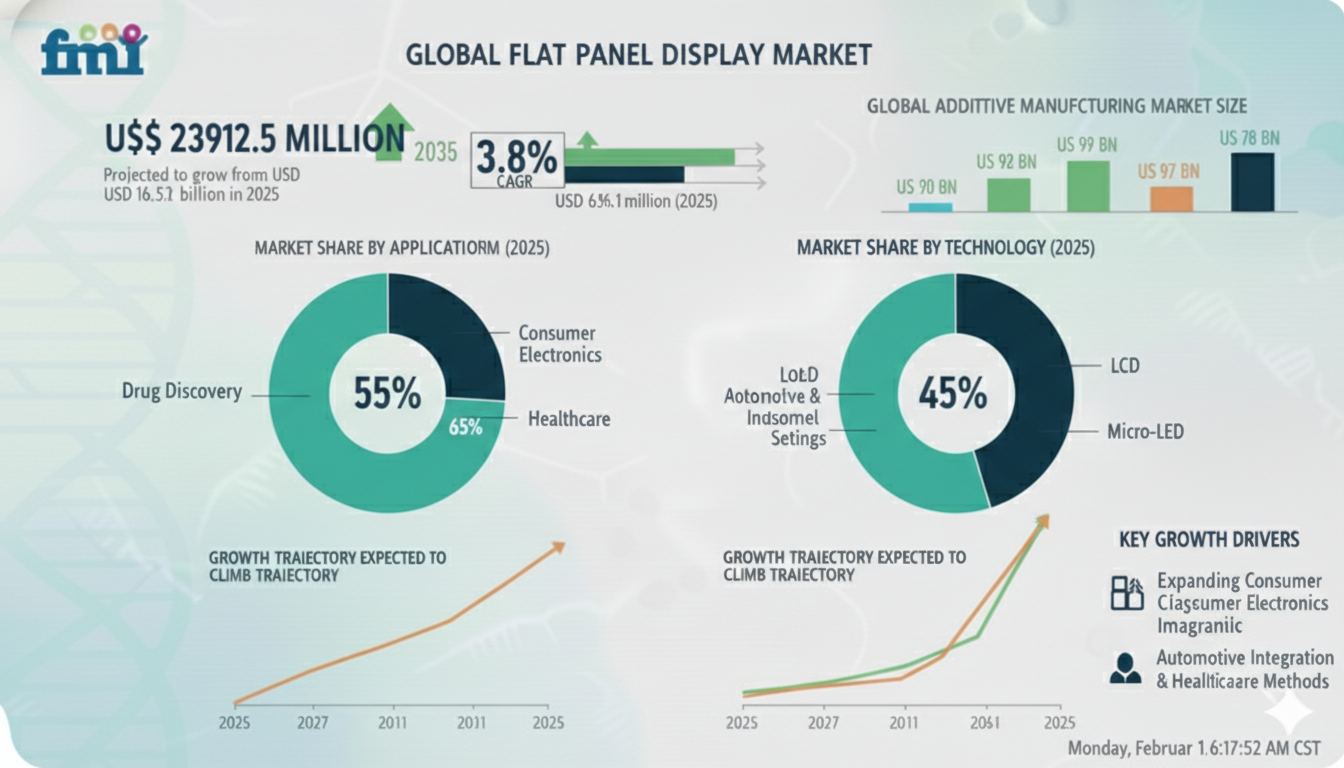
The global smart education and learning market is poised for transformative growth, projected to rise from USD 28.6 billion in 2025 to USD 65.3 billion by 2035. This growth reflects a strong compound annual growth rate (CAGR) of 9.1% over the forecast period. The expansion is being fueled by surging demand for digital learning tools, rising investments by governments in smart classrooms, and the widespread adoption of artificial intelligence (AI) in the education sector. As digital equity becomes an increasingly important goal across both developed and emerging economies, educational institutions, corporates, and ed-tech companies are accelerating the integration of intelligent learning platforms to enhance access, personalization, and engagement in education delivery.
With traditional educational structures evolving into more flexible and tech-enabled environments, the demand for next-generation learning management platforms (LMPs), cloud-based content delivery systems, and immersive technologies like augmented reality (AR) and virtual reality (VR) is rising. Smart education is no longer confined to classrooms or corporate training centers—it now encompasses hybrid and remote learning, gamified education experiences, and AI-powered learning analytics. This transformation is reshaping how students learn, educators teach, and institutions operate, with smart education solutions providing tailored learning experiences based on real-time data and student performance metrics.
Get Ahead with Our Report: Request Your Sample Now!
https://www.futuremarketinsights.com/reports/sample/rep-gb-1034
Key Takeaways
The smart education and learning market is expected to grow significantly from USD 28.6 billion in 2025 to USD 65.3 billion by 2035, propelled by a 9.1% CAGR. The growth is underpinned by the increasing adoption of digital tools in K–12 and higher education, alongside the digital transformation of workplace training. Governments worldwide are introducing policies and funding to equip classrooms with interactive whiteboards, smartboards, tablets, and high-speed internet infrastructure. In parallel, corporate L&D departments are embracing smart learning platforms to enable scalable and measurable training outcomes across global workforces.
Emerging Trends in the Global Market
One of the key trends gaining momentum is the integration of artificial intelligence and machine learning into educational content delivery. These technologies allow adaptive learning systems to offer personalized lessons, automate assessments, and provide real-time feedback. Another major trend is the rising use of gamified learning models and simulation-based training tools that engage learners through interactive and competitive elements. This is particularly relevant in STEM education, where conceptual understanding is greatly enhanced through practical virtual experimentation.
There is also a marked shift toward mobile-first learning solutions, especially in developing regions, where smartphones are often the primary access point to digital content. Educational apps and microlearning modules optimized for mobile devices are becoming essential tools for learners on the go. In addition, cloud-based platforms are seeing widespread adoption due to their scalability, easy updates, and seamless integration across multiple devices and locations. As a result, learning is becoming more accessible, on-demand, and data-driven, aligning with the preferences of digital-native generations.
Significant Developments and Market Opportunities
The smart education sector is benefiting from a wave of policy reforms and public-private partnerships aimed at improving digital literacy and access to quality education. Governments across regions such as Asia-Pacific, the Middle East, and Latin America are allocating substantial budgets to deploy smart learning infrastructure in rural and underserved areas. These initiatives are creating new opportunities for solution providers to offer localized, multilingual platforms that bridge education gaps.
At the same time, there is growing interest from corporations to upskill and reskill employees in response to rapid automation and digital transformation. This has opened up lucrative opportunities for smart corporate training solutions that incorporate virtual classrooms, AI-based coaching tools, and integrated learning analytics. Furthermore, advancements in blockchain technology are being explored for secure credentialing, certification, and digital record management, enabling learners to own and manage their academic and professional achievements more efficiently.
Recent Developments in the Market
Recent years have seen a surge in acquisitions, product innovations, and cross-industry collaborations aimed at enhancing smart learning experiences. Several leading ed-tech firms are launching AI-enabled platforms that can dynamically adjust content based on learner performance and preferences. Companies are also exploring the use of virtual and augmented reality for immersive educational experiences, particularly in disciplines like healthcare, engineering, and military training.
Global ed-tech vendors are rapidly expanding their cloud infrastructure to support high-traffic learning environments and data-heavy applications. Additionally, educational institutions are forging partnerships with technology providers to implement learning management systems that support hybrid models and real-time collaboration. The COVID-19 pandemic acted as a major accelerator in this space, prompting institutions to reevaluate their digital readiness and invest in long-term smart learning ecosystems that can withstand future disruptions.
Exhaustive Market Report: A Complete Study
https://www.futuremarketinsights.com/reports/smart-education-learning-market
Competition Outlook
The smart education and learning market is moderately fragmented, with key players competing on the basis of technological innovation, platform scalability, user experience, and content quality. Prominent companies in the sector include Blackboard Inc., Pearson Education, SAP SE, Adobe Systems, Cisco Systems Inc., Microsoft Corporation, IBM Corporation, Oracle Corporation, SMART Technologies, and Docebo. These companies are investing in artificial intelligence, cloud infrastructure, and interoperability features to differentiate their platforms and capture a broader share of the education and corporate training segments.
In addition to the global giants, regional and niche players are emerging with innovative, mobile-first platforms tailored to specific languages, curriculum standards, and learning styles. Startups focused on coding education, skill-based micro-certification, and test preparation are drawing significant venture capital funding and forming alliances with school systems and universities. Meanwhile, content creators and instructional designers are collaborating with software developers to deliver engaging multimedia-rich learning experiences that align with both academic and business outcomes.
Key Segmentations
The smart education and learning market can be segmented by component, learning mode, end-user, and region. By component, the market includes software, services, and educational content, with software comprising learning management systems, adaptive learning platforms, and assessment tools. By learning mode, the market is divided into synchronous learning, asynchronous learning, and collaborative learning. End-users span across academic institutions such as K–12 and higher education, and corporate enterprises seeking employee training and development solutions. Regionally, North America leads in terms of early adoption and platform maturity, while Asia-Pacific is expected to witness the fastest growth due to rising internet penetration, government support, and a large student population.
About Future Market Insights (FMI)
Future Market Insights, Inc. (ESOMAR certified, recipient of the Stevie Award, and a member of the Greater New York Chamber of Commerce) offers profound insights into the driving factors that are boosting demand in the market. FMI stands as the leading global provider of market intelligence, advisory services, consulting, and events for the Packaging, Food and Beverage, Consumer Technology, Healthcare, Industrial, and Chemicals markets. With a vast team of 400 analysts worldwide, FMI provides global, regional, and local expertise on diverse domains and industry trends across more than 110 countries.
Contact Us:
Future Market Insights Inc.
Christiana Corporate, 200 Continental Drive,
Suite 401, Newark, Delaware – 19713, USA
T: +1-845-579-5705
For Sales Enquiries: sales@futuremarketinsights.com
Website: https://www.futuremarketinsights.com
LinkedIn| Twitter| Blogs | YouTube




